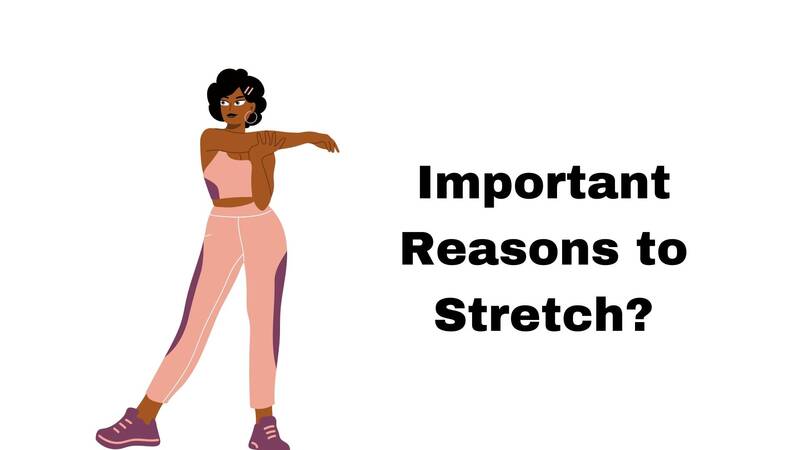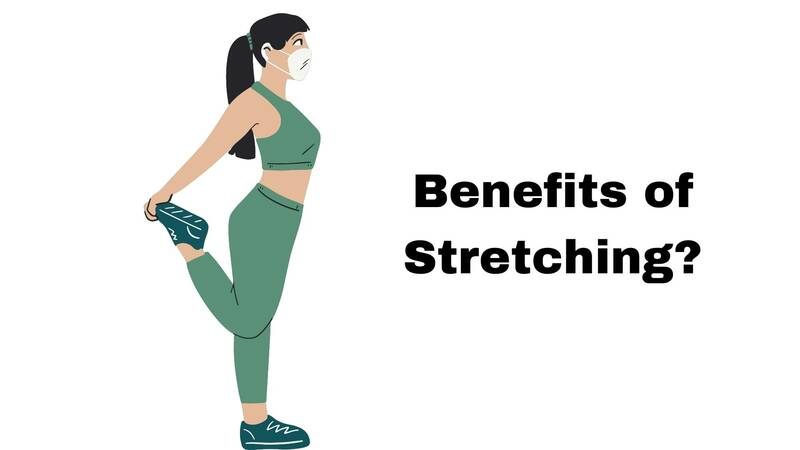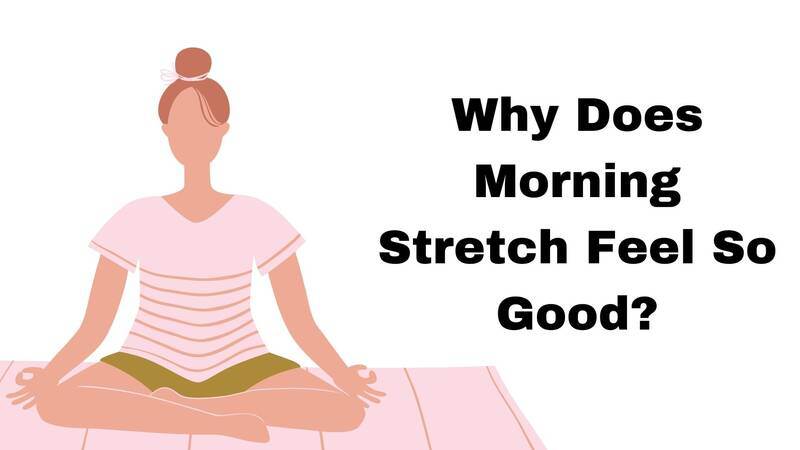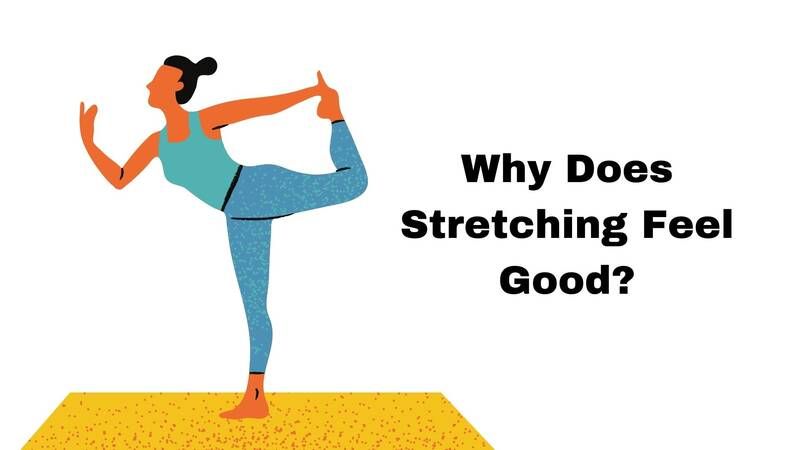Stretching removes stress from muscular bones, joints, and soft tissue while regaining youth.
According to Kika Stretching Workshops, Stretching is an excellent approach to getting the complete relaxation you’ve been looking for.
Of course, Stretching would make your body feel wonderful, but it would also help reduce the effects of aging and make you feel and look younger.
In addition, Stretching feels good because it will improve body performance and eliminate health diseases.
Every moment somebody Stretches out such a tightened muscle and perhaps tissue, it will feel wonderful and relieve discomfort.
This is due to the muscle/fascia lengthening and the reduced tight pull inside a particular spot.
Stretching improves performance, reduces injury risk, and relieves discomfort when it comes down to it.
All three things will improve a person’s quality of life and make them feel great.
That’s Why Does Stretching Feel Good for every person?
Does Stretching feel good because? It’s only natural, considering how important Stretching is for maintaining a healthy body and toned muscles.
If you’ve ever done yoga, you’re probably aware that many positions are based on Stretch.
Pilates is a low-impact training regimen that incorporates a lot of Stretching and has been popular for a long time.
Contents
What are the most important reasons to Stretch?

Although Stretching to enhance flexibility is a commonly known norm, this process can provide you with much more.
Stretching is crucial for the healthy functioning of your bones and ligaments, which many people are unaware of.
Stretching your body first thing in the morning is one of the best feelings.
Stretching also helps you to lose weight.
At times, you may even Stretch unintentionally. It’s as though your body recognizes the importance of Stretching to function more comfortably and efficiently.
Stretching your muscles lengthens them and relieves stiffness.
Stretching can also help you feel better by releasing pain-killing endorphins and improving circulation. That’s Why Does Stretching Feel Good?
There are many key reasons you should incorporate it into your daily routine. You should Stretch:
● To avoid injuries: –
Stretching as a warm-up component helps prepare your body for a strenuous workout, reducing the chance of injury and enhancing sports performance.
● To help with rehabilitation: –
Stretching after an exercise improves rehabilitation time and avoids muscular soreness.
Stretching can also be suggested as part of an injury recovery regimen.
In physical therapy sessions, several Stretches are performed to lessen or eliminate shoulder, back, neck, and knee aches.
● To keep your muscles healthy: –
The essential benefit of Stretching would be that it maintains your muscles strong, lean, healthy, and flexible, allowing your joints to move more freely.
If you don’t Stretch, your bones will tighten and lengthen, and you won’t be willing to Stretch your muscles as much as you should when doing a more intense physical activity than usual.
As a result, you should pay greater attention to the condition of your muscles and joints and maintain their tone.
Why does Stretching make you feel better?
Stretching after sleep is a normal and largely unconscious action observed in animal behavior.
Science can readily explain it. Pandiculation is the process of Stretching after a night’s sleep to reawaken your muscles.
However, this isn’t the main reason people Stretch, and it doesn’t explain why it feels so nice.
The variables that cause Stretching to feel good answer the query “Why Does Stretching Feel Good?” These elements include:
● Endorphins are released: –
Stretching, along with many other forms of physical activity, causes the production of endorphins, which are molecules that are related to morphine and generate feelings of happiness and euphoria. They also work as analgesics, reducing pain perception, which is critical when suffering from a specific injury.
● Relaxing sensation: –
According to research, Stretching stimulates the parasympathetic nervous system, which is important for relaxing, resting, and metabolism.
When you Stretch, your muscles’ nerves send messages to your brain, boosting the parasympathetic system and resulting in a nice feeling of relaxation.
● Stress levels have dropped: –
Stretching is not healthy, but it is also great for your mind.
Stretching allows you to unwind and focus on the process, your technique, breathing, and sensations.
It relieves stress and promotes mental equilibrium by calming you down and clearing your mind of unneeded anxiety and anger.
One of the reasons why many yoga practices include Stretching as an element of meditation is this.
● Blood flow is enhanced: –
According to another study, Stretching activates the parasympathetic reaction after a workout.
It elevates heart rate quickly while Stretching, enhancing circulation in your muscles, feeding them with blood, nutrients, and proteins, and improving your general wellness.
It can also assist your body in eliminating pollutants and waste.
For example, waste products build up in the muscles while you sleep.
Stretching also causes veins to constrict, raising blood pressure and eliminating harmful build-ups from your lean tissues.
● Muscular pressure is reduced: –
Your muscle lengthens, and persistent contract happens when they remain in the same posture for an extended length of time.
It can result in tension, stiffness, and tightness, leading to pain or injury.
However, when you Stretch, you are doing the opposite of contracting, which helps to relieve stress and pain.
And, as an added benefit, it always feels amazing.
Some Benefits of Stretching are as follows:

Stretching also helps to grow and survive properly. Not only does Stretching make you feel good, but it also helps to maintain your body health. Regular Stretching has several possible advantages, including:
● Flexibility has improved: – Stretching can aid in lengthening muscles and improving range of motion.
● Circulation is improved: – Stretching regularly may offer both short-range and long-term benefits. Your circulatory health comes from a reliable source.
● Injury risk is reduced: – Improving your range of motion may help reduce your risk of muscle damage.
● Back discomfort is reduced: – Stretching and strengthening your back muscles can help relieve and prevent back discomfort.
● Athletic performance has improved: – Improved joint mobility and flexibility can help you improve your sports performance.
● There will be less tension: – Stretching is calming to many people. Stretching triggers the parasympathetic nervous system, which can help you relax.
● Improved posture: – Tight muscles might cause your body to assume a bad posture. Incorporating a Stretching and core-strengthening regimen may help you achieve better alignment.
Avoid these Stretches’ Errors
While Stretching can help you feel renewed and comfortable while improving your muscular tension condition, it’s crucial to follow the rules and complete all of the exercises correctly. Improper Stretching should hurt and cause pain.
In addition, negligence and a lack of patience might result in weakened and loose muscles, increased stiffness, or even muscle tears.
As a result, you should avoid making the following common blunders.
● Discord: –
Like yoga, gymnastics, and high-intensity interval training (HIIT), Stretching is a type of physical activity.
And, like all those other workouts, it affects your muscles.
So, just as you wouldn’t lift a dumbbell with only your right hand or lunge in one direction when Stretching, you should use both sides and areas of your body equally.
For example, it’s unnecessary to Stretch your right side if you’re experiencing soreness in your right thigh.
However, even if it isn’t causing any issues and is working well, you must Stretch your left thigh in the same way.
● Stretching too much: –
In proportion, everything is fine. And doing too much of anything has never yielded favorable consequences.
It also pertains to Stretching. Exercising too much might have major negative repercussions.
OverStretching can cause your muscles to become weak and lax, resulting in tiny or even complete tears of muscles, joints, or bones.
● Don’t rush: –
Even if you’re pressed for time and want to get to your workout as soon as possible, pre-workout Stretching should never be skipped or rushed.
Instead, take your time Stretching, and if you’re short on time, it’s best to lessen the number of activities you do during your workout rather than speeding through your warm-up.
● Quick movements: –
OverStretching or hurrying were stated above, but quick movements are another problem that goes hand in hand.
According to the main rule of Stretching, it would help if you never Stretch to the point of pain or discomfort.
Rapid movements may be the cause of both of these factors.
You may hurt your muscles and add to muscle stiffness if you jerk or bounce during a Stretch.
As a result, your movements should be smooth and deliberate.
● Sets in general: –
It’s a good idea to do a complete full-body Stretching exercise, but it takes a long time, so making it a distinct workout might be a smart idea.
When Stretching before exercising, concentrate on the muscles that will use the most during your workout.
For example, if you’re going for a run, you should focus on your feet, calves, hamstrings, glutes, quads, and hip flexors, but a warm-up before a swim session should include all main muscle groups, from arms and shoulders to calves and hamstrings.
Read– Magnesium Detox
Why do we Stretch?
Extending will feel better and lighten the anguish when someone loosens up a tight muscle and sash.
This is due to the muscle/belt lengthening and a reduction in the quick draw in a specific region.
So we can do Stretching because it will provide more relaxation and an active body.
When we do Stretching in the morning, it will provide more activeness and improve the overall performance of daily life.
Stretching early in the morning might help release any stress or pain built up during the night.
This also improves blood circulation and prepares your body for each day forward.
In addition, Stretching before bedtime assists in relaxing your body and prevents you from waking up in agony.
● Reduce Stress (Why Stretching Feels Good):
Stretching aids in the quieting of the psyche by increasing the path to the mind, which promotes a sensation of prosperity and calm.
Similarly, the more you stretch, the more you can loosen up tense, tight muscles, distributing pressure throughout your body.
Yogic breathing techniques are also effective for releasing stress.
As a result, back pain Is completely gone.
Stretching helps relieve back pain by putting strain on the muscles that support the spine and strengthening those muscles using specific stretch-developing and reinforcing exercises.
● Reduce the Risk of Injuries Actively (Why Stretch feels good):
The more adaptable you are, the more range of motion your appendages and major body parts have, making it more difficult to injure yourself if you fall.
Push yourself too hard during an exercise, or inadvertently put your body in an abnormal position.
This is accomplished by assisting with the unrestricted growth of the body’s major joints, such as the hips, shoulders, knees, and neck.
Why Does Morning Stretch Feel So Good?

Consider the morning Stretch to be the equivalent of a shot of espresso.
It has been shown to relieve pressure and limber you up.
The most efficient method to start the day is with this ideal free muscle enlarged bloodstream and happy emotions.
Stretching in the morning feels good because it helps release any stress or pain built up during the night.
Stretching can also help you throughout the day in the following ways:
Proactively reduces stress.
Consistent pressure can cause unpleasant reactions in your body, such as apprehension, weakness, and strain.
Stretching for the day has been shown to reduce mental worry and, when combined with breathing techniques, is an excellent tool for reducing anxiety and despair.
Extending your muscles releases endorphins
On several levels, Stretching and extending feels much better.
A Stretch extending meeting and other actions cause the mind to manufacture endorphins, synthetically similar to sedatives, and invigorate the cerebrum’s pleasure centers.
Stretching in the morning makes you stronger and taller.
Stretching Helps You Relax – Why Does Stretching Feel Good?
Tiny nerve cells inside the muscle send information to the mind’s unwinding focuses, causing a measurable unwinding that lasts 60 to 90 seconds, prolonging the power and ligament. Another explanation is that it is considerably more pleasurable to grow. That’s Why Does Stretching Feel Good.
It reduces many problems like pain, tension, and many other things.
Read– Does Nutritional Yeast go bad?
Reference
https://www.prweb.com/releases/2005/02/prweb206424.htm
https://www.healthdigest.com/669718/what-healthy-people-actually-do-every-morning/
https://betterme.world/articles/why-does-stretching-feel-good/
- Understanding HIPAA Compliance: Obligations for Covered Entities and Business Associates - April 23, 2024
- Things to Invest in for the Easter Season in 2024 - March 29, 2024
- Why Experience Matters: Finding An Established Dental Implants Provider - March 29, 2024
